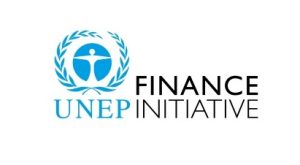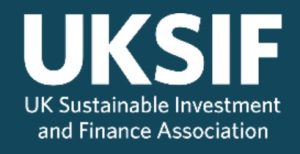Net Zero Standards for Banks
The Institutional Investors Group on Climate Change (IIGCC) and the Transition Pathway Initiative Global Climate Transition Centre (TPI) have released net zero standards for banks to help it achieve climate goals and assist investors in measuring net zero transition.
IIGCC believes that the banking industry plays an important role in the global decarbonization path and is also an essential part of investor asset allocation. The net zero standards for banks is based on the Paris Agreement, attempting to address climate related financial risks and avoid greenwashing. Previously, IIGCC had released guidelines for net zero transition for enterprises, helping them reduce carbon emissions and providing long-term stable returns for investors.
Related Post: Institutional Investors Releases Net Zero Transition Guidelines
Banks’ Role in the Net Zero Transition
Banking industry is crucial for the operation of the global economy, as they provide financial services such as loans, securitization, and underwriting. The net zero transition of the banking industry is also an important part in the global net zero transition. 131 banks had established the Net Zero Banking Alliance (NZBA) to strengthen the climate commitment of the financial system.
For banks, a net zero plan is the correct risk management tool. The intensification of climate change, such as rising sea levels or global warming, may have a negative impact on the operational activities. Shareholders of banks also have a need to demand that banks achieve net zero transition as soon as possible. How to understand and evaluate the progress of net zero, and whether these development meets the requirements of the Paris Agreement, are the issues that IIGCC is trying to solve.

The Contents of Net Zero Standards
IIGCC has set net zero standards for banks and focuses on considering banks’ emissions from financial activities. Compared to the carbon emissions during the operation of banks, the emissions from financial activities are larger, which can also reflect the commercial risks faced by banks. This net zero standards can also serve as a supplement to the Net Zero Investment Framework (NZIF).
The net zero standards include the following parts:
- Commitment: Banks should establish a comprehensive commitment that is consistent with the goals of the Paris Agreement and covers all on-balance sheet and off-balance sheet financial activities.
- Object: Banks should establish short-term, medium-term, and long-term goals to reduce carbon emissions, and involve multiple businesses such as loans, project financing, acquisition financing, and asset management.
- Disclosure: Banks should disclose carbon emissions involved in various business activities, as well as carbon exposure. Any activities related to carbon offsetting should be disclosed separately and not included in emission targets. If necessary, third-party certification can be sought to facilitate comparison.
- Performance: Banks should disclose the annual progress of all net zero targets and adopt consistent measurement standards to provide historical data for investors to track the transition.
- Strategy: Banks should develop decarbonization strategies to reduce climate risk. For example, adjusting carbon exposure, strengthening financing for the green economy, and supporting the development of low-carbon technologies.
- Climate solutions: Banks should provide support to businesses’ climate solutions, such as improving taxonomies to enhance transparency and setting industry standards in financing services.
- Engagement: Banks should designate board of directors to oversee engagements, evaluate their role in associations, and review their stance on climate related policies.
- Governance: Banks should designate board of directors to incorporate climate change into governance processes such as auditing, risk, and compensation, and establish an incentive structure based on net zero transition.
- Just transition: Banks need to consider the potential social impact of net zero plans and maximize social benefits, reduce harm, and achieve fair net zero transition.
- Reporting standards: Banks should comply with the disclosure standards of the Task Force on Climate Related Financial Disclosures (TCFD) and conduct climate stress testing, sensitivity analysis, and other review activities in accordance with regulatory policies in their respective regions.
Reference:





